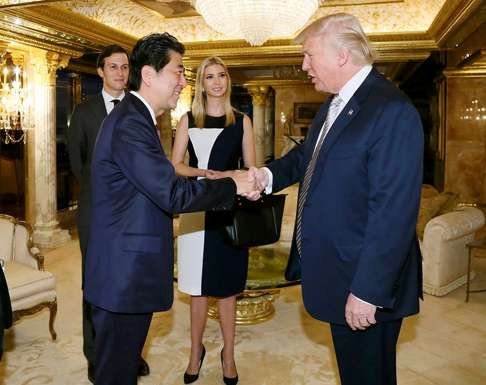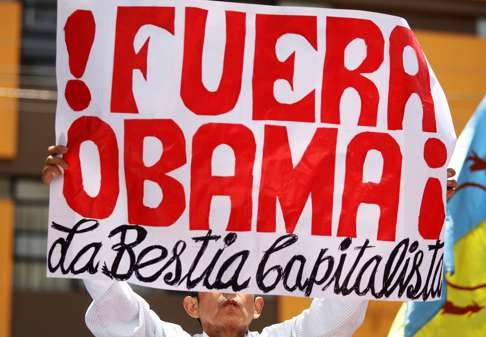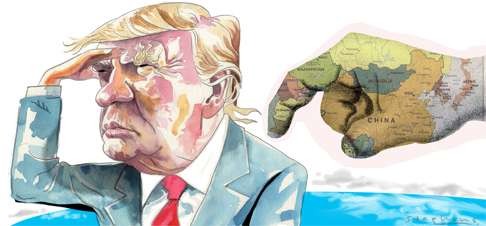
The US can no longer overlook Asia’s re-emerging great powers
Douglas H. Paal says the incoming Trump administration will need to reassess the geopolitical realities as Russia, China and India join the US in defining the future of the region
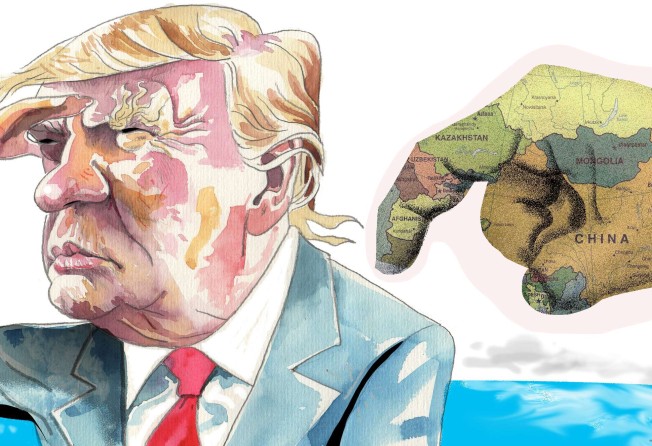

On trade, Trump wants to pursue more advantageous bilateral free trade agreements rather than the TPP. This might have the benefit of building on the agreements reached under the TPP, but it offers the disadvantage of risking exposure of American and other businesses to a crazy quilt of mismatched rules and tariffs. The Obama administration mismanaged the politics and procedures of the TPP, and the price of failure will be high, including giving China the lead in advancing multilateral trade agreements in the region at the expense of America’s traditional lead.
On defence spending, Trump is pushing against an open door in Japan, where Prime Minister Shinzo Abe welcomes foreign pressure to move his country to more spending and readiness on defence. Given Japan’s deep pacifism, however, movement in this direction can be expected to be halting and limited.
South Korea is in a political crisis caused by a scandal, but because of the threat from the North and the need for strategic support, Seoul should also be willing to boost its contribution to defence. But, with an election coming next year, the contest between conservative and liberal candidates is likely to lead to sharp debate.
North Korea has every incentive to step up provocations next year, both to test its new weapons to improve them, and also to rattle the South Korean voting public in an election year, hoping to return a liberal government to power. Previous liberal governments have been more generous to and less demanding of Pyongyang. The North’s provocations are likely to occur early and often, probably even before Trump can assemble a team in depth to manage this increasingly grave challenge to peace in the region. They should begin thinking about this challenge now.
Elsewhere, a legacy of the Obama administration is the apparent demise of the rebalance or pivot to Asia, America’s emblematic major effort to define the region. TPP was the economic leg of the rebalance and is now gone. The diplomatic leg continues but needs work to make up for its emphasis on defence rather than development and regional civilian architecture. The security leg was overplayed, more rhetorically than in substance, leaving an impression of trying to contain rather than balance China, without the clout to follow through.
The Trump administration should take stock of the post-cold-war re-emergence of regional great powers
The Obama primacy of rhetoric over substance is tilting the incoming Trump team in the opposite direction, towards a military build-up, which China can certainly match, thus auguring increased strategic competition.
Traditional American allies Thailand and the Philippines are increasingly estranged from Washington, leaving greater scope for Beijing to cultivate influence. Washington is not competing to meet the political and developmental needs of either nation. Similarly, Malaysia’s US-friendly prime minister quixotically is being investigated for corruption by US authorities, making the US more welcomed on the Malay street than before, but leaving Najib Razak little recourse but to turn to China.
American political campaigns are usually fought over past mistakes, and the incoming challengers tend to swing like pendulums against everything the previous administration stood for. This time is no different, but there is a pressing need to shift from looking in the rear-view mirror to looking at the new world taking shape.
As the Trump administration gathers itself, it should take stock of the post-cold-war re-emergence of regional great powers. America’s success in spreading development and democracy now gives it potential partners – and rivals – in ordering the world’s affairs. Moscow, Beijing and Delhi will join the US in defining the future of Asia, and Washington should figure out how best to advance its interests in this new era. Trump’s non-mainstream approach to Russia might provide an opening to reconstructing a more positive relationship with President Vladimir Putin to this end.
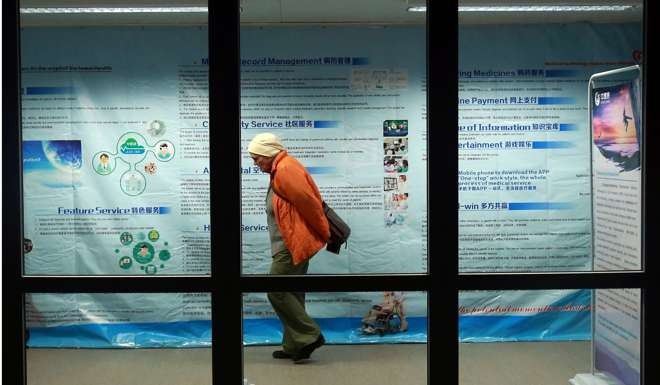
International economic governance is also being challenged. Obama took a mistaken approach to oppose China’s Asian Infrastructure Investment Bank. Beijing is promoting its “One Belt, One Road” integration of Asia, and offering large loans for development. The International Monetary Fund, World Bank and Asian Development Bank are having trouble keeping up with the times with resources and representative governance. The Trump team would do well to surprise the world with a call for an updated Bretton Woods that will more broadly distribute the responsibilities for advancing the economic future.
Finally, Trump can show vision by reorganising the Asian-related components of the US government. The organisation charts of the state and defence departments reflect an immediate post-second-world-war set of needs, not the newly emerging Eurasian reality. The office of European affairs will never take care of Central Asian concerns as well as an office that deals regularly with China and India, for example. This could be an opportunity for much needed downsizing in the government as well, after years of counterproductive bloat.
Douglas H. Paal is vice-president for studies and director of the Asia Programme at the Carnegie Endowment for International Peace
